Next week, our editorial team will finalize and announce the nominees for The Car Connection’s top award: Best Car To Buy 2021. After spending the year logging tens of thousands of miles test driving more than 100 new 2021 vehicles (and a few 2020 models that showed up too late to make last year’s cut), our team identified those new vehicles that best handle the realities of everyday life.
Through informed debate and collegial bickering, our staff picks the winner based on a variety of criteria. No two opinions are the same, but we’re objective about our subjectivity to help you make the most informed, fact-based decision when car shopping. We’d like to hear your opinions, too, so please weigh in for the 2021 Driver’s Choice award on The Car Connection.
Best Car To Buy 2021 focuses not on enthusiasts’ pursuits but on the everyday, workaday heroes that best get us around to our myriad interests and purposes. We look to a car that balances value, fuel efficiency, safety, interior spaciousness, quality, design, and driving dynamics. We exclude cars that cost more than $ 50,000.
MORE: Follow all our Best Car To Buy 2021 news as we name a winner
The winner doesn’t need to be good at each of those things—it needs to be great.
A look back at previous winners provides inspiration and a frame of reference. These are winners we stand by today as we look toward the announcement of our tenth annual Best Car To Buy.
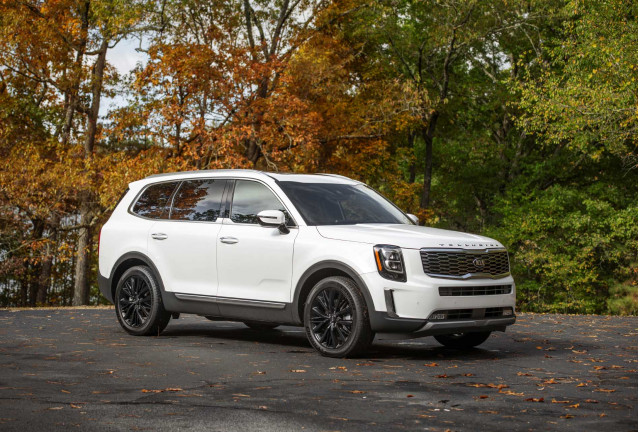
2020 Kia Telluride – Best Car To Buy 2020
The 2020 Kia Telluride won our Best Car To Buy voting by a landslide. The handsome crossover SUV that seats up to eight passenger bested the related 2020 Hyundai Palisade on looks alone, but it also excelled with loaded standard features at a value, and creature comforts that could pass for a luxury vehicle. We weren’t alone in our praise for the largest Kia; even before the COVID-19 pandemic restricted supply, shoppers waited months to take delivery of the Telluride because Kia couldn’t build them fast enough.
What was so special about another three-row crossover SUV? It stood out in the dull sea of family haulers by being the best family vehicle, best crossover, best and highway cruiser. It also had the best interior and the best exterior, and it came with superlative safety equipment and many standard features, ranging from adaptive cruise control and smartphone compatibility to a reassuring 5-year/60,000-mile warranty. The 291-horsepower 3.8-liter V-6 paired to an 8-speed automatic transmission with available all-wheel drive made the spacious SUV feel much lighter on its rounded feet, and it was still reasonably efficient at 20 mpg city, 26 highway, 23 combined.
Ultimately, the Telluride climbed far above the nine other nominees. The rugged truck-like looks balanced the sophistication of a Land Rover with the edge of a GMC Denali, but with distinction clearly marked for the Telluride. The clean lines and refined finished carried over to the inside, where it took on minivan roominess and its available power-folding third row seat opened up 46 cubic feet of space. No other vehicle for 2020 brought it all together in such a compelling package, especially in our recommended EX trim for about $ 40,000.
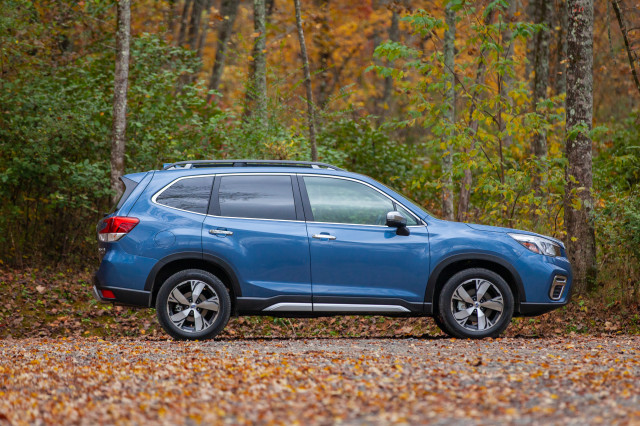
2019 Subaru Forester
It shouldn’t have been a surprise that a crossover SUV topped our Best Car To Buy 2019 contest. America’s best-selling segment teemed with good selections but the 2019 Subaru Forester stood above the rest for its unbeatable blend of everyday practicality and value. It’s not the first time that Subaru has nailed our criteria: the 2014 Subaru Forester was our Best Car To Buy 2014, representing our only repeat winner.
The redesigned 2019 Subaru Forester might not have turned many heads but it got heads nodding in appreciation once behind the wheel. The spacious interior, great forward vision, standard active safety features, good fuel economy of 29 mpg combined with standard all-wheel drive, and impressive comfort and convenience features made it an all around great vehicle with great value.
We recommended a well-equipped Forester Premium for $ 28,300, which appealed to our frugality without feeling like a budget crossover SUV. There were more powerful compact crossovers than the Forester’s 182-horsepower 2.5-liter flat-4 with a continuously variable transmission, and there were stronger outward personalities. But no other 2019 vehicle matched the Forester’s blend of function, comfort, safety, and value.
2018: Honda Accord
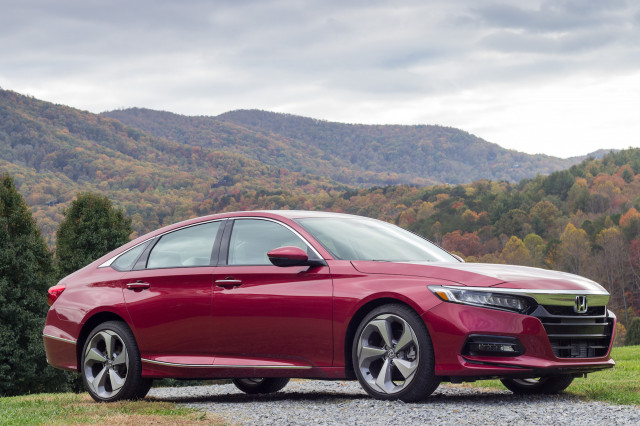
2018 Honda Accord
The 2018 Accord wowed us before we even drove it with its sleek styling, fuel-efficient engines, and luxury-level interior. Then we drove it. Expectations: exceeded. The 2018 Accord was enough to keep us in the sedan fold even against an onslaught of crossover SUVs that handle family duties with minivan-lite confidence.
Honda’s move to a turbocharged engine lineup gave the Accord some much-needed verve without sacrificing fuel economy. The all-day comfort of its seats combined with its improved Apple and Android-compatible infotainment made the Accord pleasant for daily commutes and for long highway treks. Top trims ride on an adaptive suspension that we said “hits our sweet spot.”
And at around $ 25,000 to start, the Accord was highly equipped at every level and cost well less than the average new car. Our enthusiasm for Honda’s mid-size sedan hasn’t waned, even as buyers flock toward crossover SUVs.
2017: Chrysler Pacifica
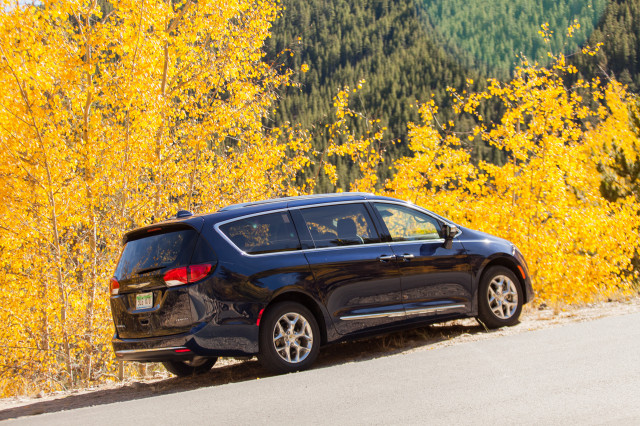
2017 Chrysler Pacifica Long Term Fall Gallery
The minivan isn’t dead—if anything, it’s becoming the “thinking family’s hauler.” It’s with that mindset that the 2017 Chrysler Pacifica easily won us over. Its flexibility was unmatched by anything on our nominee list. Between two rows of seats that fold into the floor to create a completely flat load space at the tug of a pair of levers, a high-class interior with lots of standard and optional technology, and a strong V-6 engine, the Pacifica checked off all our boxes.
Later in the model year, a hybrid version arrived. Factoring in a federal rebate, the hybrid’s actually cheaper—and thriftier—than the standard model, although it lost the hideaway second row that tucked into the cargo floor.
The Pacifica won’t reboot minivans as buyers increasingly flock to less useful crossovers, but those in the know certainly get it.
2016: Honda Pilot
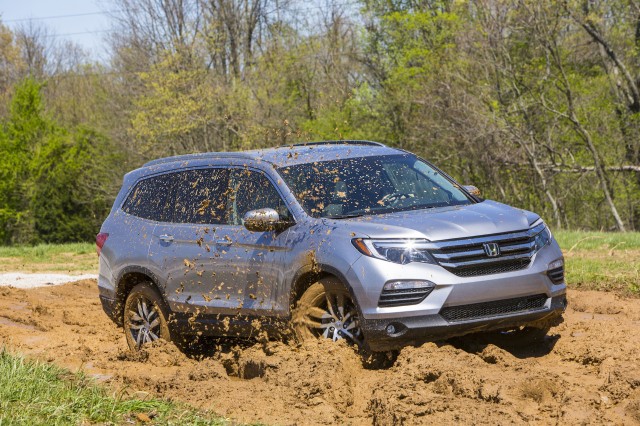
2016 Honda Pilot
In 2016, Honda surprised us with its third-generation Pilot. Its predecessor was surprisingly trucky, but the new-for-2016 Pilot arrived with slick styling and road manners to match. In typical Honda fashion it made leaps and bounds inside where buyers need the most, gaining a far more versatile interior with excellent space for every passenger.
Moreover, the Pilot was surprisingly good to drive. We called it “suave, slick, with great utility and safety to boot” last year, and the same holds true now.
Competition only gets fiercer among three-row crossovers, but the Pilot remains a standout. An update for 2019 made active safety tech standard and reworked some of the optional transmission’s shortcomings.
2015: Subaru Legacy
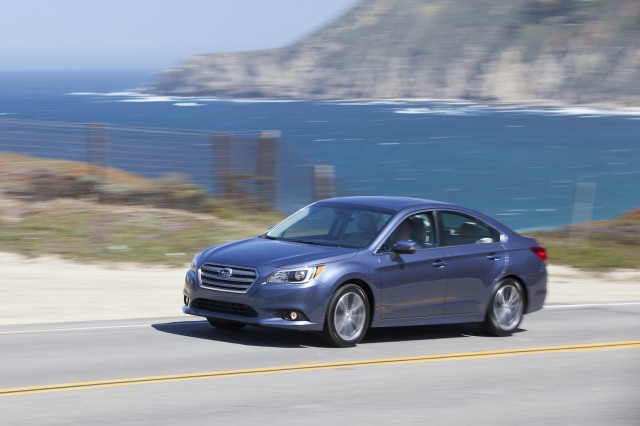
2015 Subaru Legacy 2.5i
Displacing even its versatile Subaru Outback sibling, the mid-size Legacy won the 2015 award for a variety of reasons. It was as polished to drive as any rival, and it came standard with all-wheel drive. Its spacious interior trended toward luxurious with its soft materials and elegant design, and Subaru didn’t skimp on active safety tech.
We had an especially competitive pool of rivals for the 2015 award, but the Legacy’s outstanding value helped it: “It’s the value factor that really nudges the Legacy ahead of every other contender,” we reported.
Today, the Legacy retains those solid virtues and remains desirable among mid-size sedans—especially with active safety gear newly standard for 2019. A revamped Legacy bowed for 2020.
2014: Subaru Forester
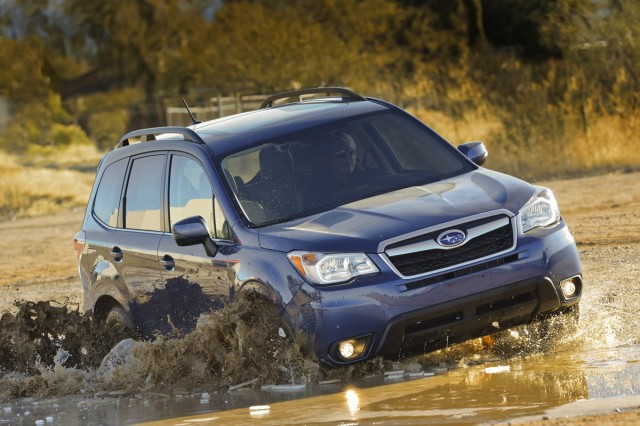
2014 Subaru Forester
With its wide range of trim levels, two powertrains, standard all-wheel drive, and stellar outward visibility, the Subaru Forester was an easy choice as the Best Car To Buy 2014. We liked its base 4-cylinder engine as much as the zippy turbo unit in the Forester XT, and we were especially appreciative of its move toward mainstream.
“It’s no longer an oddball niche wagon; instead it’s a fully sorted, thoughtfully designed vehicle in nearly every respect, looking beyond the crowd that dons Tevas and fleeces and incorporates a carabiner in their daily commute gear,” we said.
Subaru reworked the Forester for 2019, keeping its chunky looks but swapping in a new, stiffer platform and a more versatile interior.
2013: Ford Fusion
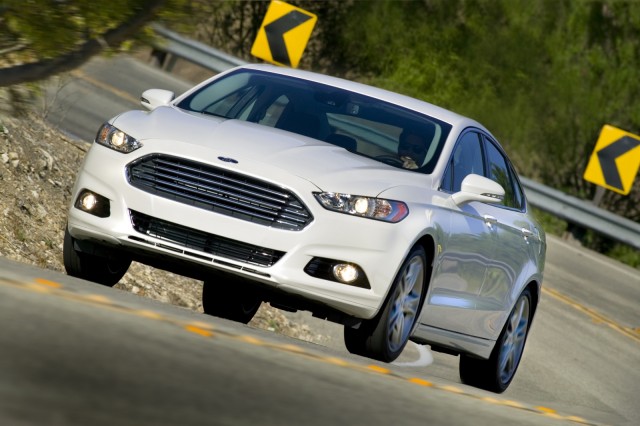
2013 Ford Fusion
Aston Martin-like styling wasn’t the only thing that attracted us to the Ford Fusion a few years back. Making its predecessor look like the humble choice that it really was, the redesigned Fusion brought some much-needed style and a wide range of engine options to the mid-size sedan. Not only that, but also it was entertaining to drive and comfortable on the freeway.
“There’s nothing exotic on its spec sheet, but the Fusion steers briskly, rides firmly, and barely conceals the European-engineered sport sedan hiding behind its American nameplate,” we said.
Today, the Fusion is starting to feel a little long-in-the-tooth up against more recently redesigned rivals, but it’s still a looker. A new Fusion Sport with a twin-turbo V-6 infused (pardon the pun) this model with some more excitement, but Ford has plans to drop sedans from its lineup over the next year.
2012: Ford Focus
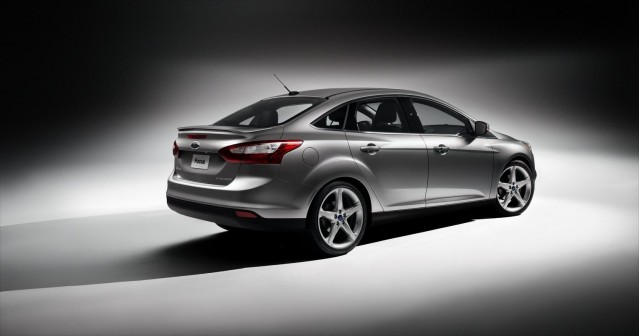
2012 Ford Focus
Ford looked to Europe for the 2012 winner, too, with its new Ford Focus. American buyers were short-changed a Focus redesign (its predecessor dated back to the late 1990s), but we found a Focus that was totally worth the wait. Available as a sedan or a five-door, the Focus was fun to drive and was a good value. Suddenly, everything else in its class felt, well, outclassed.
“Even in a day where dull, droning econoboxes are the exception rather than the rule, the 2012 Focus grabs attention, both for the way it looks and for the way it handles,” we said back then.
Ford chose not to replace the Focus after this model’s run. It retired the name after the 2018 model year and shelved plans to bring the redesigned model to the U.S. in favor of crossovers and pickup trucks.
2011: Hyundai Sonata
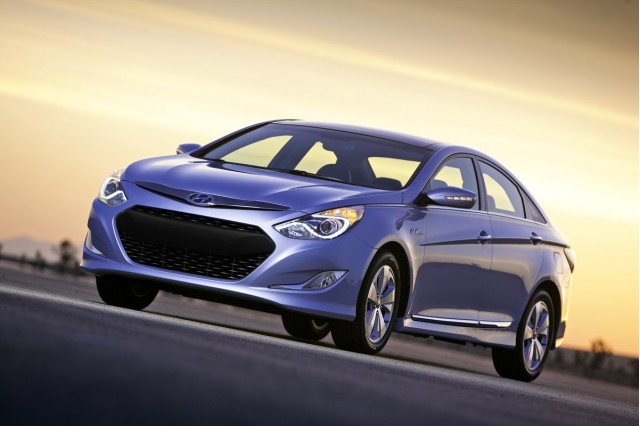
2011 Hyundai Sonata Hybrid
Few cars have wowed the auto industry in recent years like the Hyundai Sonata. Going from dull to stop-and-stare in just a single generation, the Sonata is the model that vaulted Hyundai into the mainstream. Every Hyundai since owes its success to the 2011 Sonata. We loved its lineup that included naturally aspirated and turbocharged 4-cylinders, as well as a thrifty hybrid, which helped us award it top honors in our inaugural Best Car To Buy competition.
“That it does so at a base price of $ 19,995 is a testament to the thorough transformation it’s undergone—in moving to a U.S. assembly site, in adopting a vivid and memorable new styling theme, and in delivering top-notch safety and a full list of standard features, right out of the box.”
Hyundai redesigned the Sonata for 2015 and updated it again for 2018. The latest models don’t capture the 2011’s magic, but they remain excellent mid-size sedans. A stylish new Sonata has been introduced for 2020.



